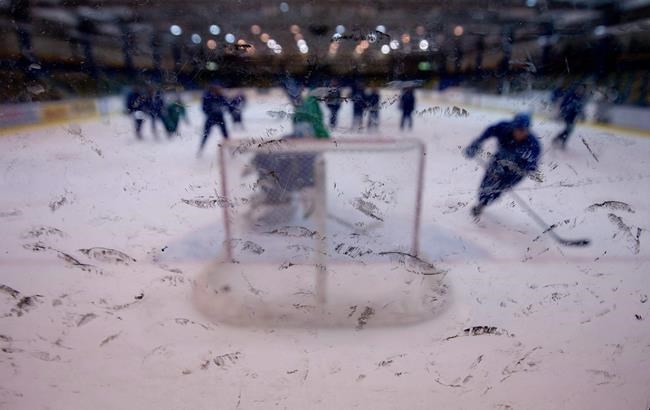Hockey parents rattled by yet another abuse scandal can press sports organizations about what they're doing to keep young athletes safe, say experts, as accusations swirling around the Chicago Blackhawks' renew concerns about player safety.
North Vancouver native Kyle Beach has come forward as one of the accusers at the centre of an investigation into how senior leaders of the NHL team mishandled sexual assault allegations against an assistant coach.
Beach was a 20-year-old minor leaguer called up in case the Blackhawks needed help in the playoffs at the time of the alleged assault in 2010.
The CEO of the Sport Dispute Resolution Centre of Canada says Beach's story shows how athletes at every level can fall prey to abuse.
"If it can happen to an adult ... imagine how vulnerable children are in sport," said Marie-Claude Asselin. "If this is what happens to a professional hockey player, then what happens in the community arenas and rinks?"
Gretchen Kerr, the dean of University of Toronto's kinesiology and physical education program, said sexual misconduct is often underreported, so it's hard to gauge how pervasive it is in sports. But she said research suggests it's one component of a systemic problem of abuse against athletes.
"Sexual abuse does occur, but not nearly as frequently as the psychological forms of harm," said Kerr. "There are strategies used to develop talent in young people that can be potentially harmful psychologically."
The burden shouldn't fall to parents to prevent sexual abuse, said Kerr, but there are precautions they can take to help hold athletics organizations accountable.
"The onus is really on the sport organizations to ensure the safety of young people," said Kerr. "I think that's where the questions should be focused."
Lorraine Lafrenière, CEO of the Coaching Association of Canada, encouraged parents to ask sports organizations about their sexual abuse prevention policies.
She suggested questions such as: What type of training is available to the coaches and athletes? Is there a way to report complaints to an independent party? Does the organization have a "rule of two," meaning there should be at least two adults and two children present at all times?
"We need to look at questioning the policies of a club not as questions of suspicion, but simply questions about a shared responsibility in healthy sport for all participants," said Lafrenière.
Signy Arnason, associate executive director at Canadian Centre for Child Protection, urged parents to be on the lookout for inappropriate interactions between coaches and young athletes, such as physical contact, sexual jokes, excessive attention or attempts to isolate a child.
Arnason said parents should engage their kids in discussions about healthy behaviour and boundaries, and how they can get help if they feel uncomfortable. But she said these conversations need to be age-appropriate and not rooted in fear.
"This actually isn't about sport," she said. "It's about these environments where individuals are going to have access to kids, and ensuring, as adults, we're putting all the appropriate systems in place to address these types of concerns."
— with files from The Associated Press
This report by The Canadian Press was first published Oct. 28, 2021.
Adina Bresge, The Canadian Press



